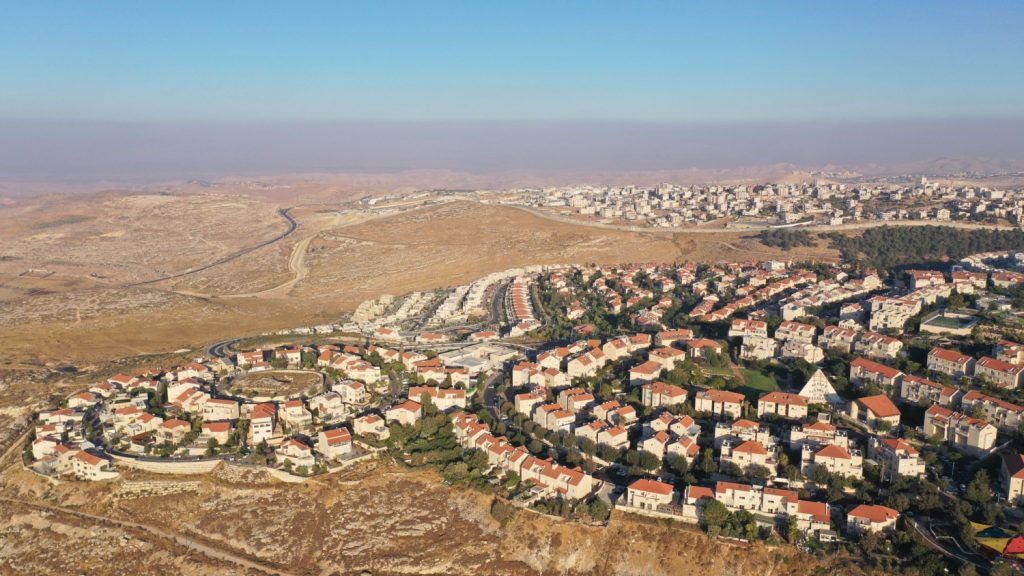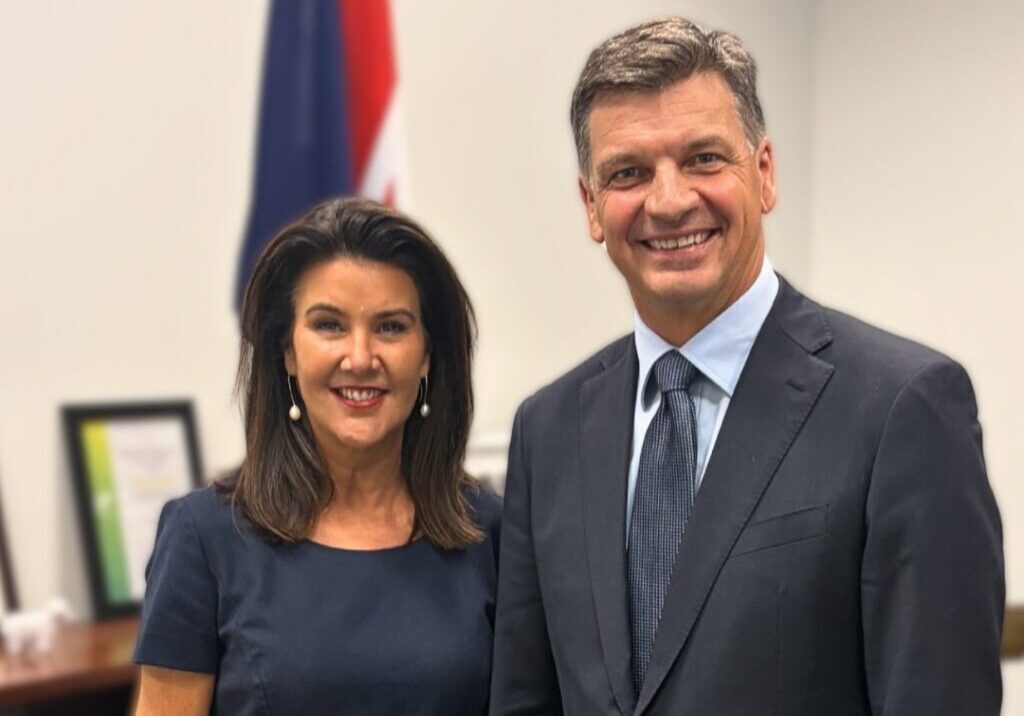Australia/Israel Review
A Parliamentary Preoccupation
Aug 28, 2023 | Jamie Hyams

The debate in Canberra over “Occupied Palestinian Territories”
On the morning of August 8, several news outlets reported that Foreign Minister Senator Penny Wong (ALP, SA) had announced in ALP caucus that morning that the Government would refer to land captured by Israel in the 1967 Six-Day War as “Occupied Palestinian Territories”, and Israeli settlements in those areas as “illegal”.
This became the subject of much debate in Parliament. That afternoon, in the final question of Senate Question Time, Senator David Fawcett (Lib., SA) asked Minister Wong, “Will the Albanese Labor government be changing Australia’s position in terms of how we describe Israeli settlements as being legal or not under international law… [and] also be changing Australia’s position to formally recognise such territories as occupied Palestinian territories?”
Minister Wong responded that the Government “is guided by the principle of advancing the cause of peace and progress towards a just and enduring two-state solution. It is clear that viewing the conflict from one perspective will not achieve such peace, and any lasting solution… cannot be at the expense of either Palestinians or Israelis. The conflict is a matter to be resolved through negotiations between the parties.”
She added that previous Government steps had been “consistent with these principles” and it was now “gravely concerned about alarming trends that are significantly reducing the prospects of peace” and was therefore “strengthening its opposition to settlements by affirming that they are illegal under international law and are a significant obstacle to peace.”
Senator Fawcett then, crucially, asked, “Minister, the media is… saying that the government will recognise certain territories as occupied Palestinian territory. Has the government determined precise boundaries for these territories, and, if so, how has such determination been anything other than, as the minister has previously said, a unilateral action which reduces the prospects of a just two-state solution?”
Minister Wong responded that “In adopting the term, we are clarifying that the West Bank, including East Jerusalem, and Gaza were occupied by Israel following the 1967 war and that the occupation continues.” She stated that was consistent with UN resolutions, the approach taken by “key partners” and it “is a term which has been used on past occasions, by past foreign ministers and past governments.”
In fact, while previous Australian governments may have casually referred to the territories as “occupied” or “Palestinian”, “Occupied Palestinian Territories” had never previously been a term used officially or in common practice by any Australian government or senior minister.
A transcript of Minister Wong’s answers was posted on her website in lieu of any official statement.
The following day, in the House of Representatives, Opposition Leader Peter Dutton (Lib., Dickson) opened Question Time by asking Prime Minister Anthony Albanese (ALP, Grayndler), “Can the Prime Minister explain why his government has taken a decision to unilaterally determine where Israel’s borders lie? Does the Prime Minister think it was appropriate for him to hang one of Australia’s closest Middle East security partners out to dry as part of a backroom deal to avoid an embarrassing factional fight over AUKUS at Labor’s national conference?”
Prime Minister Albanese responded, “There has been no unilateral action by my government. My government is a strong supporter of Israel and its right to exist within secure borders… We believe that it is in the interests of both Israelis and Palestinians to have a settlement to what has been a substantial dispute… that has had implications not just for the region but for the world. My government will continue to engage constructively on these issues. My government has the same position as the Conservative government led by Rishi Sunak, as European governments and as Australian governments historically… We regard a two-state solution as being essential. We think that it is in the interests of both Israelis and Palestinians for there not to be actions by either side that undermine the potential of the achievement of that two-state solution.”
At the same time, in the Senate, Shadow Foreign Minister Senator Simon Birmingham (Lib., SA) opened Question Time by citing various criticisms of the decision from Jewish sources, and asking Foreign Minister Wong, “… can you cite precisely what motivated your government to make this unilateral change at this time other than to appease Labor’s factions ahead of next week’s party conference?”
Minister Wong responded by basically repeating her answers from the previous day, and saying that Senator Birmingham’s assertion that “this is inconsistent with longstanding Australian policy” is “simply incorrect”.
Senator Birmingham then asked Minister Wong how the decision was not contrary to positive trends in relations between Israel and other Middle Eastern countries, and whether further changes to Australia’s position towards Israel could be ruled out regardless of “whatever factional divisions, debates, shenanigans, occur at next week’s Labour Party Conference.” Minister Wong responded by claiming that the Coalition had been inconsistent when in government, but she had always been consistent.
Responding to the answers straight after Question Time, Senator James McGrath (Lib., Qld.) said, “As someone who went to Israel last year” he saw that Israelis “live in a liberal democracy. Everyone is equal. But… there is no democracy or freedom in the West Bank.”
Later that afternoon, in the Senate, Senator Claire Chandler (Lib., Tas.) moved a motion:
“…to condemn the Albanese Labor Government’s latest broken election promise on Israel, as a result of a backroom factional deal ahead of Labor’s national conference, which unilaterally changes Australia’s position, and does nothing to advance Australia’s long-standing position to support a lasting two-state solution… ”
Speaking to her motion, Senator Chandler said the Government’s decision would “be welcomed by dangerous organisations and regimes, which are not just violently opposed to the existence of Israel but are also violently against the West,” and contrasted the Government’s speed on this issue with the fact “it is now six months and counting and the Albanese government still hasn’t managed to respond to a Senate committee report on the emergency human rights situation in Iran.”
The following also spoke on Senator Chandler’s motion.
Senator Deborah O’Neill (ALP, NSW) Chair of the Parliamentary Friends of Israel, said Australia is a friend of peace, of Israel, and “of the occupied Palestinian territories” and insisted the Government was following the policy of previous Coalition and ALP governments. She added that the Government has “strong support for the legitimacy and continued security of the State of Israel,” welcomes the Abraham Accords and “respects Israel’s right to defend itself in a uniquely challenging environment.”
Senator Mehreen Faruqi (Greens, NSW), her party’s Deputy Leader, said she is proud her party “long ago recognised Palestinian statehood and has the courage to call out Israel’s systemic injustice for what it is: apartheid,” adding that “Labor’s shift in language” is “the bare minimum”, and that Palestinians “are subject to daily humiliation, brutality and violence by the Israeli government,” and Australia’s Government is “aiding and abetting this violence, oppression and systemic elimination of the Palestinian people.”
Senator Paul Scarr (Lib., Qld) said the issues can only be resolved by negotiation between Israel and the Palestinians, but the Government decision “presupposes the outcome of a negotiated settlement process. That is totally inappropriate. This matter will not be resolved by international parties seeking to unilaterally impose their views on the parties…” He said no consideration had been given to the fact that some of the Jewish people’s most holy sites are in the territories in question.
Senator McGrath accused the Government of “making international foreign policy based on internal factional whims.”
Senator Raff Ciccone (ALP, Vic.) argued that the Government’s steps “do not prejudge any of the final status issues” and do “not change the fact that Australia is a committed friend of Israel,” and assured that “Australia will not be imposing its views on the final borders and boundaries, which should be the result of peace negotiations.” He added that the Government would continue to work “against the scourge of antisemitism, which is often propagated by conspiracy theorists in relation to the State of Israel,” and also claimed the language is not new.
Finally, Senator Hollie Hughes (Lib., NSW) referred to the plight of gay Palestinians who have to flee for their lives to Israel, and said, “Just this year, Minister Wong claimed in Senate estimates: ‘We do not support unilateral actions which reduce the prospects of a just two-state solution.’ Clearly, that was misinformation.” She noted that “the Australia/Israel & Jewish Affairs Council has referred to this decision by Labor as ‘profoundly disappointing’.”
The motion proposed by Senator Chandler was defeated along party lines, with the ALP, Greens and Senator David Pocock (Ind. ACT) voting against.
Tying with Senator Faruqi for the most unhinged contribution was Senator Lidia Thorpe (Ind., Vic), formerly of the Greens. On Aug. 10, she stated, “I… condemn the violent occupation of Palestine, the brutality of the colonial power that is Israel and their state-sanctioned murder of the Palestinian people.” She accused Israel and Australia of “attempted genocide” and apartheid.
Tags: Australia, Israel, Palestinians






